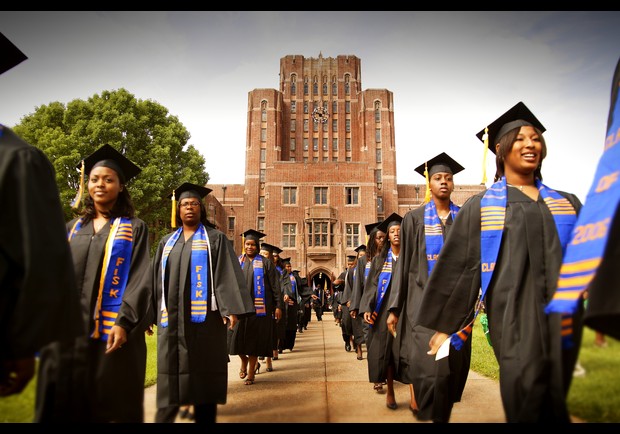By: Daniel Rose
The changing economic and social conditions that pose severe challenges to higher education today have been devastating for Historically Black Colleges and Universities (HBCUs). The crisis they face must be acknowledged and confronted. Many observers feel that in 2017, the HBCU’s still have an important role to play; others believe they are relics that have outlived their time; but all understand that under current conditions they cannot survive.
HBCUs have produced 70% of all black American doctors and dentists, 50% of black engineers and public school teachers and 35% of all black lawyers. Even in 2017, when they constitute only 3% of the nation’s colleges, they educate 9% of all black college students and account for 23% of their college degrees, including 40% of STEM and 60% of their engineering degrees. The students they serve are disproportionately poor, 73% qualifying for Pell grants and most the first in their families to attend college.
Until the Supreme Court’s Brown vs. Board of Education decision in 1954, these were virtually the only schools open to blacks; and they have earned praise for the crucial role they played in informing, reforming, and reshaping America.
Today, with colleges increasingly diverse and democratic in student admission and faculty/administration composition, 90% of black college students attend integrated mainstream schools and some 20% of the students at HBCUs are not black. Diversity, integration and student psychological support are national goals.
For HBCUs to remain relevant, they need help. HBCUs have smaller endowments than mainstream colleges and fewer donors; they receive much less government support. With the tightening of credit standards, they are at a disadvantage in providing students with tuition assistance and other help in paying for their education. Yet the 300,000 students HBCUs serve would suffer a profound loss without them.
Yes, Barack Obama went to Yale and Michelle Obama to Princeton, Neil de Grasse Tyson to Harvard and Henry Louis Gates, Jr. to Yale. But large numbers of low-income black and other students come from high schools in poverty-stricken areas that prepare them inadequately for college. HBCUs play a crucial role by giving them the opportunity to get a quality higher education. A 2015 Gallup poll of black students found that HBCU students were happy about their choice for several reasons:
they had at least one professor who cared for them and encouraged their career goals, who excited them about learning. Many mentioned a shared sense of responsibility for each others’ success and there were no stereotypic expectations of failure. The psychological support is reflected in the results.
New Orleans’ Xavier University, for example, has more black students who apply to and graduate from medical school than any other college in the country, including Ivy League schools. It is also first in the nation to graduate black students with Bachelors’ degrees in biology and physics, and third in the black graduates who earn doctorates in science and engineering. Its full tuition ($19,800) is below that of most flagship schools, and Xavier extends itself to provide financial help to its students, more than half of whom come from low-income homes.
For many black students, HBCUs are a prudent choice of a congenial setting where they will feel emotionally supported by role models and mentors who encourage their aspirations to high achievement in their academic careers and in their lives.
How to help the best HBCUs survive is a national problem. They cannot do it by themselves, and the federal government’s efforts on their behalf have been disappointing.
Some fresh approach is needed. A major, independent, high-level commission composed of qualified individuals could recommend solutions that might be painful and politically incorrect but would be pragmatically effective.
A good example would be reconsideration of Howard University’s teaching hospital, which has served its community since 1868, but operates at a significant annual loss – $17 million in 2013 – which is a cash drain the university cannot afford; the hospital’s aging, inadequate physical facilities require capital improvements with no funding source in sight. Logic calls for the hospital to be spun off, with community services provided by others, but that is not currently feasible politically. An outside, independent report might make it possible. The recommendations of such a commission might include:
A) Prudent mergers of redundant schools and consolidation of competing weak institutions;
B) Appropriate changes in mission, educational offerings and facilities;
C) Closing of institutions that have lost academic accreditation or are incapable of performing at acceptable levels.
D) A major, nationwide fundraising effort to convince alumni and philanthropists to provide endowments and gifts for operating expenses.
Like single-sex or ethnically-segregated colleges, HBCUs are fighting against time and change. But as long as they fill a need, a national black constituency should step forward and act on their behalf.


Great read! We need to work on the education system but getting rid of places like those mentioned is NOT the way to go.
I think HBCUs are in need of serious funding, especially since Trump titled it as a waste of funding.
Completely agree with you. HBCU’s are in desperate need of some very serious funding.
Thank you for the feedback.
The beauty of the article is that it is creating discussion on a topic in need of some serious thought and decisions. One thing is obvious…HBCU’s are in desperate need of more funding.